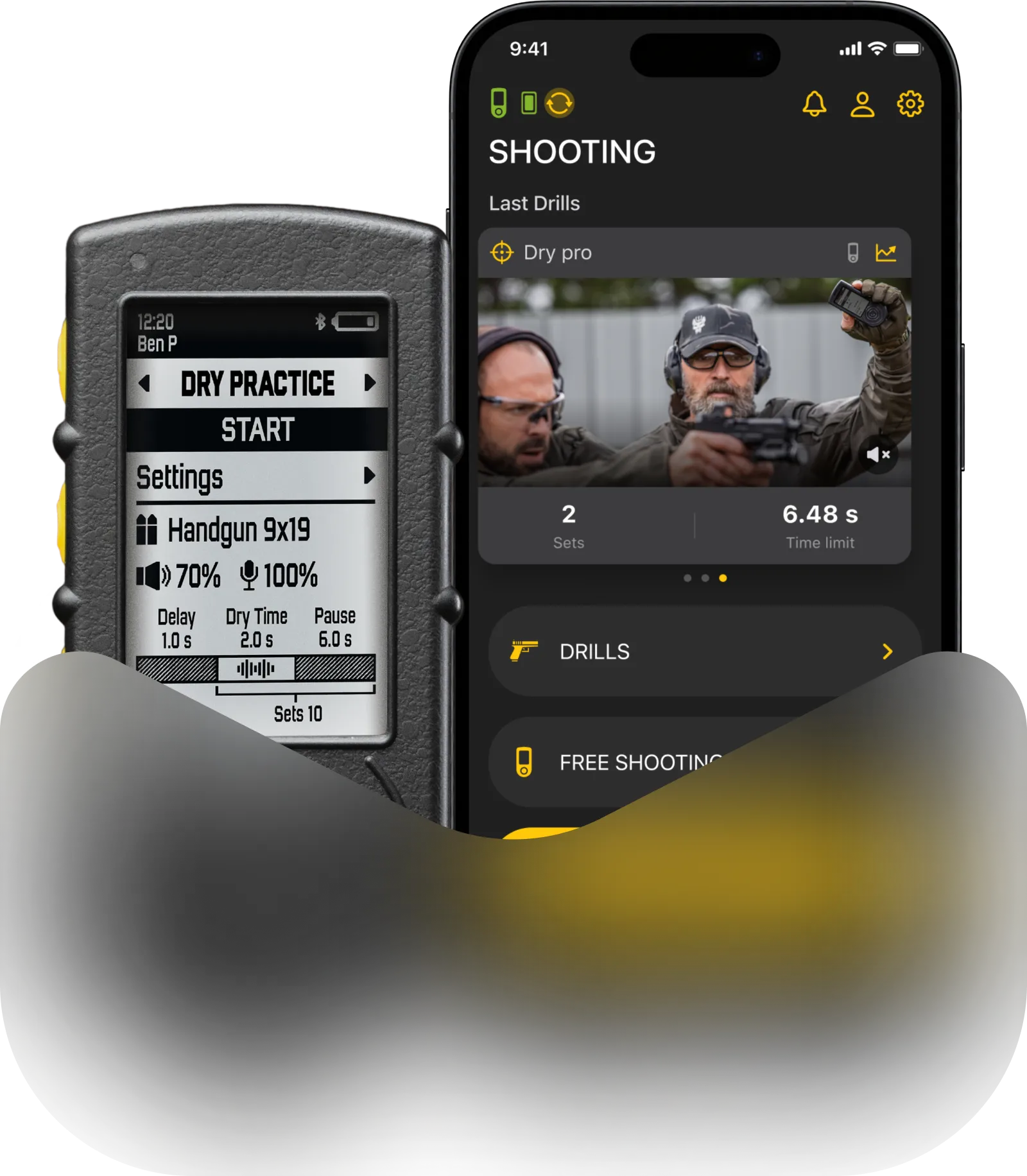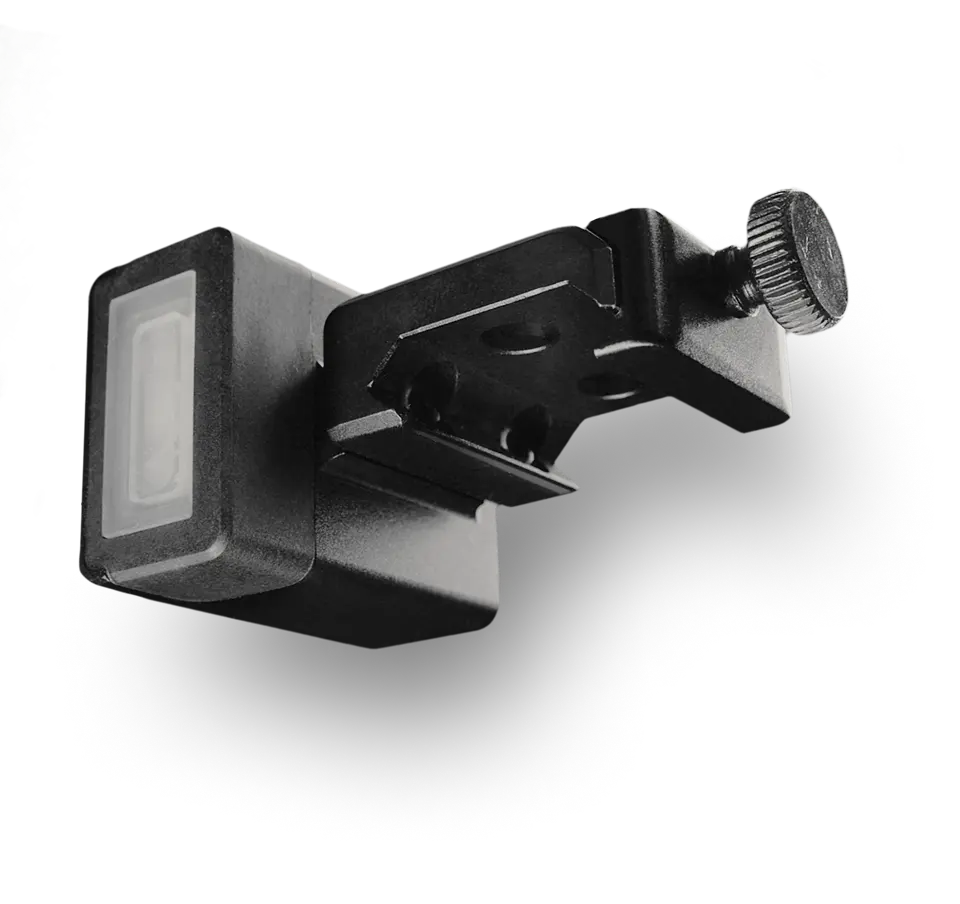Wprowadzenie
Strzelanie wolne to najprostszy i najszybszy sposób, aby rozpocząć trening z SG Timer, jeśli nie musisz szczegółowo śledzić swoich wyników przez dłuższy czas.
Pozwala to ustawić proste czasy par, lub po prostu używać timera w tradycyjny sposób, gdzie wystarczy znać czasy strzałów.
Twoja historia strzałów i podziałów czasowych zostanie zapisana w timerze lub w aplikacji Drills w sekcji Aktywność, a także możesz tutaj nagrać wideo z nałożeniem czasu strzału.
Na głównym ekranie zobaczysz przycisk startu, menu ustawień wstępnych, głośność sygnału dźwiękowego, czułość czujnika, ikonę trybu szpiegowskiego, opóźnienie przed startem, limit czasu, limit strzałów, przerwę między seriami oraz liczbę serii.
Dowiedz się więcej o tych ustawieniach tutaj.
Możesz zmieniać wszystkie ustawienia zarówno na timerze, jak i w aplikacji mobilnej Drills.
Ustawienia są podzielone na 2 kategorie: konfiguracja czujnika, w której można kontrolować wszystko związane z czujnikiem i sygnałem dźwiękowym, oraz ustawienia programowania, które kontrolują program, który timer będzie używać przy wydawaniu sygnałów.
Preset to kombinacja ustawień „konfiguracji czujnika” i ustawień programowania.
Wszystkie ustawienia są przechowywane w presetach. Możesz dodać do 7 niestandardowych presetów. Można je dodać, usunąć i edytować na SG Timer lub w aplikacji Drills. Nazwy presetów można zmieniać tylko w aplikacji Drills.
Dowiedz się więcej o ustawieniach presetów, czujnika i programowania tutaj.
Dowiedz się także: Przewodnik po aplikacji Drills
Strzelanie z SG Timer / SG Timer 2
Wybierz tryb „Free Shooting”. Następnie przejdź do ustawień wstępnych i wybierz preset, którego chcesz użyć. Możesz także edytować istniejący preset. Pamiętaj, że to nadpisze ustawienia w presetu.
Naciśnij przycisk „Start” i rozpocznij strzelanie.
Aby wyjść z trybu strzelania, naciśnij górny przycisk.
Jeśli chcesz natychmiast rozpocząć kolejną sesję, naciśnij ponownie „Start” bez wychodzenia z trybu strzelania.
Po wyjściu z trybu strzelania wyświetli się lista strzałów, którą możesz przewijać.
Jeśli miałeś kilka zestawów, wszystkie będą wyświetlane na jednym ekranie. Użyj przycisków Góra i Dół, aby przewijać strzały. Aby przewijać zestawy, wybierz menu Zestaw i naciśnij środkowy przycisk.
Dowiedz się tutaj, jak ustawić wiele zestawów.
Wszystkie sesje „Strzelanie wolne” są również zapisywane w historii na SG Timer.
Dowiedz się więcej o zakładce „Historia” tutaj.









